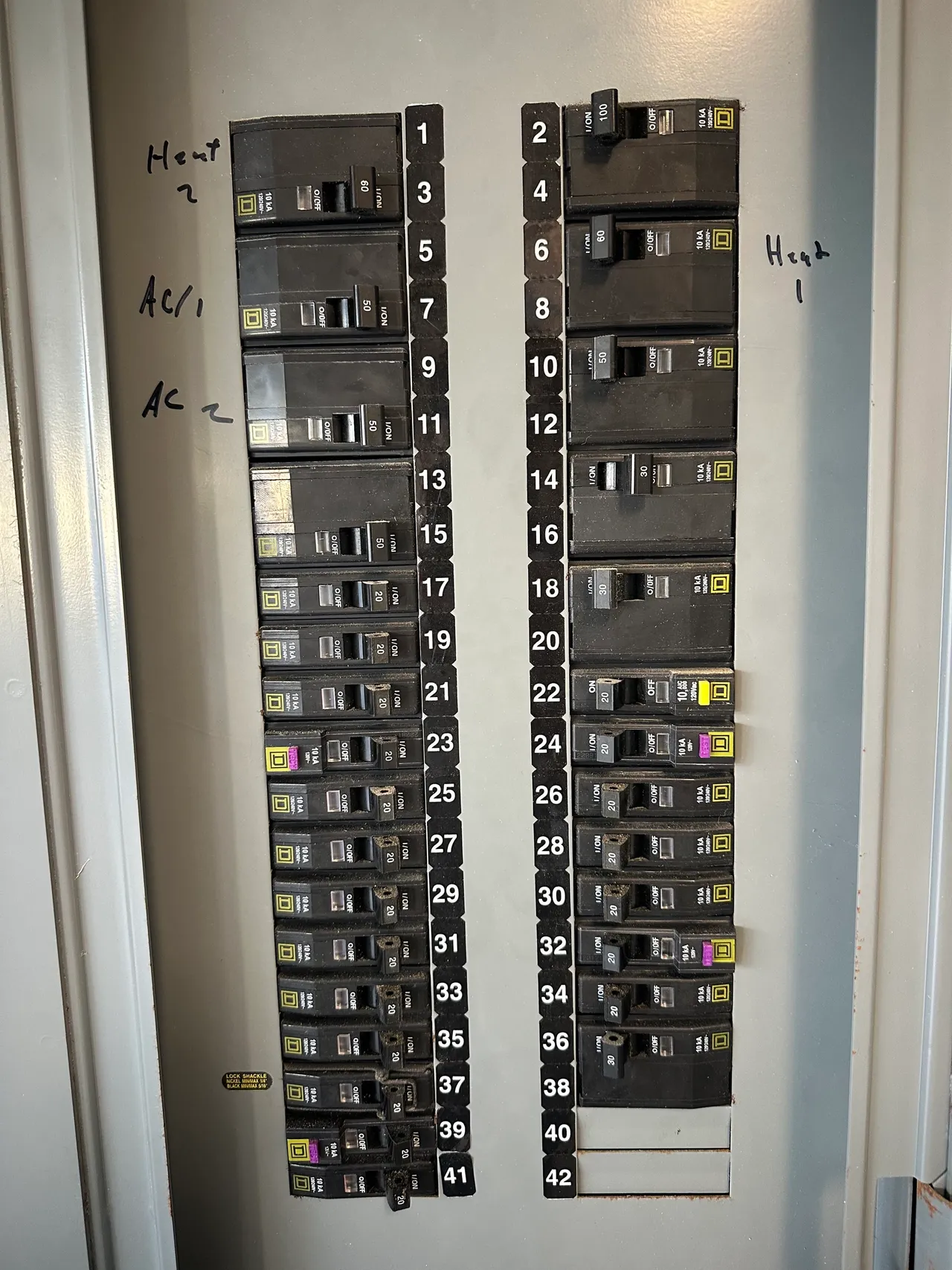Circuit breakers are essential safety devices in your home’s electrical system. Their job is to detect and stop unsafe electrical currents, helping to prevent fires, shocks, and damage to appliances. But when a breaker keeps tripping, it can quickly become a source of stress and inconvenience.
If you’re constantly resetting breakers, it’s important to understand what’s causing the issue. In this post, we’ll explore the most common reasons for tripped breakers and offer practical tips for resolving them.
🔌 Overloaded Circuits
Overloads happen when a circuit is asked to deliver more electricity than it was designed for. This often occurs when too many devices or high-wattage appliances are plugged into the same outlet or circuit.
Solution:
Spread your electrical load across multiple outlets or circuits. Avoid plugging several large appliances into a single power strip. If overloads are frequent, you may need to add dedicated circuits or upgrade your panel.
⚡ Short Circuits
A short circuit occurs when a hot wire touches a neutral wire or ground, creating a sudden surge of current. This is a dangerous situation and will cause your breaker to trip immediately.
Solution:
Short circuits can be difficult to track down and should be handled by a licensed electrician. Look for signs like burn marks, popping sounds, or a burning smell near outlets or appliances.
🌧️ Ground Faults
Similar to a short circuit, a ground fault happens when electricity flows through an unintended path, often due to moisture or damaged wiring. Ground faults are particularly common in kitchens, bathrooms, and outdoor spaces.
Solution:
Install or replace Ground Fault Circuit Interrupters (GFCIs), which are designed to detect and stop ground faults quickly. If your GFCI outlets are tripping regularly, have your wiring inspected.
🧯 Faulty or Aging Appliances
Old or malfunctioning appliances can draw excessive current or cause fluctuations, leading to breaker trips.
Solution:
Unplug appliances one at a time to identify the culprit. Replace any that are sparking, overheating, or not functioning correctly. A full home electrical inspection can also identify hidden issues.
🌡️ Overheating or Loose Connections
Loose wires, corroded terminals, or damaged breakers can overheat, triggering the breaker’s thermal sensor.
Solution:
Check your panel for signs of overheating, like discoloration or burning odors. These are serious warning signs—call a professional right away.
Call Jacksonville’s Trusted Electricians Today
Frequent breaker trips are more than a nuisance—they’re a sign that your system needs attention. At Current Electrical Contractors, our licensed electricians are ready to diagnose and fix your electrical issues with care and precision.
📞 Call us today to schedule a service in Jacksonville, FL.
✅ Fully licensed and insured for your peace of mind.
💡 We look forward to earning your business and keeping your home safe—one circuit at a time.

